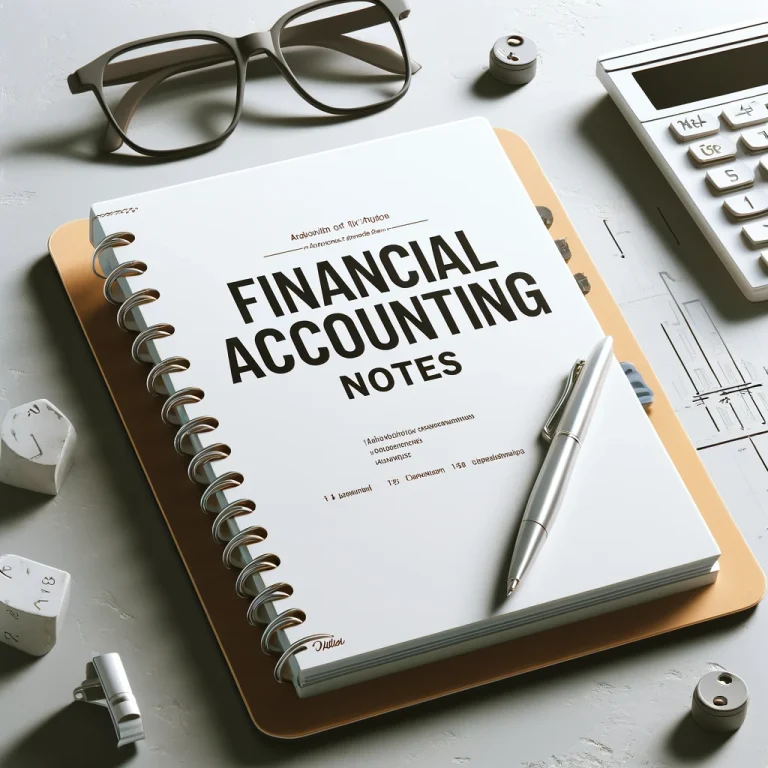Financial accounting is an essential area of business management and corporate governance since it provides the base for transparent, reliable, and standard financial reporting. This discipline involves careful systematic recording, analysis, and presentation of the financial transactions to deliver important information pertinent to the stakeholders investors, regulators, and the top executives—with crucial information for decision-making. To have a complete understanding, it is crucial to have a structured approach to studying finance. This is where financial accounting notes become indispensable.
Financial accounting notes thus hold the basic principles of this huge process. Among these, they contain minute details on the financial position and working activities of an organization. These notes typically include summaries of significant financial policies, statements of comprehensive income, balance sheets, and cash flow statements. With these well-organized notes, candidates can focus their efforts on critical topics, practice efficiently, and retain information more effectively. Thereby boosting their chances of clearing ACCA, CFA, or CMA exams in the first attempt.
The main objective of Accounting is to provide financial information to stakeholders. This financial information is normally given via financial statements, which are prepared based on Generally Accepted Accounting Principles (GAAP).
Financial Accounting Syllabus Structure
To gain understanding and to provide a working knowledge of accounting concepts, detailed procedures, and documentation involved in financial accounting systems. The syllabus aims to test the student’s ability to:
- Understand the framework of accounting systems and the Generally Accepted Accounting Principles.
- Prepare necessary financial statements related to different business entities.
- Construct financial statements for understandability and relevance of stakeholders.
| Financial Accounting Syllabus | |
| Sec-A: Accounting—Basics | 25% |
| 1. Fundamentals of Accounting 2. Accounting for Special Transactions | |
| Sec-B: Preparation of Financial Statements | 40% |
| 1. Preparation of Final Accounts of Profit Oriented Organizations, Non-Profit Organizations and Incomplete Records. 2. Partnership Accounts | |
| Sec-C: Self-Balancing Ledgers, Royalties, Hire Purchase & Installment System, Branch & Departmental Accounts | 20% |
| 1. Self-Balancing Ledgers 2. Royalties, Hire-Purchase and Installment System 3. Branch and Departmental Accounts | |
| Sec-D: Accounting in Computerised Environment and Accounting Standards | 15% |
| 1. Preparation of Final Accounts of Profit Oriented Organizations, Non-Profit Organizations, and Incomplete Records. 2. Partnership Accounts | |
The topics the financial accounting syllabus covers range from financial planning to performance management and strategy in financial management, which makes sure that candidates develop relevant skills to excel in their careers.
We hope this article containing Financial Accounting Notes was informative and useful in providing you with the right resources for preparation. You can also go through our blogs and study material for detailed information on topics related to CMA, CFA, ACCA, and more.


